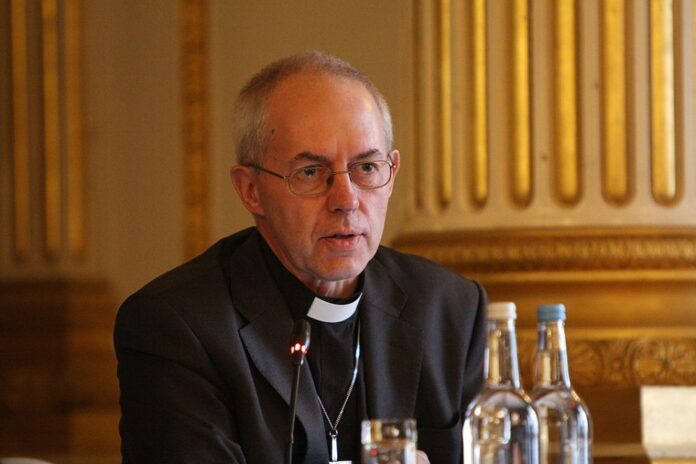As I pressed “send” on my email, attaching a letter to him calling on him to resign, the news on my screen flashed – “Justin Welby, Archbishop of Canterbury, has resigned.” The spiritual leader of the global Anglican church, Welby had been under increasing pressure to step down after a new report showed he had done nothing to intervene and ensure safety and due process when told on numerous occasions between 1978 and 2013 of sexual and physical abuse by John Smyth, a counsellor at Anglican summer camps.
I am a survivor of sustained and terrifying clerical sexual abuse as a teenager by Meirion Griffiths, then an Anglican minister in the Diocese of Chichester. Forty years later, I was finally ready to sue the church to end his ability to use the power of his “cover” as a priest to hide his predatory behaviour. In the early ‘90s, I had tracked him to Perth, Australia, and later made a formal complaint about him there. Following their investigation, the Bishop of Perth wrote to me that Griffiths’ file had been marked “not to be employed” by the diocese.
In 2014, I decided that I needed to do more, having discovered that Griffiths had just moved up the road and joined another denomination. He still had access to young people and could still use his status as a priest to draw them in and abuse them. My solicitor wrote to Welby asking him to intervene and settle my case. He described the horrendous abuse I suffered over 18 months – evidence accepted by the Perth diocese – and informed him about a second complainant who reported Griffiths’ sexual abuse of her to Chichester police, resulting in their decision to press charges and seek Griffiths’ extradition from Australia.
The archbishop passed the letter on to one of his lawyers, who offered the usual performative apology.
“Please … convey to your client the archbishop’s concern and apology on behalf of the whole Church of England for the distressing and shameful events mentioned in your letter. . . Please assure your client that these safeguarding issues and the follow-up to historic abuse are high up in the archbishop’s priorities.”
“You will be very aware of the constraints under which we in the profession have to work in dealing with these miserable matters. The scope for personal and sensitive engagement is very limited.”
This statement suggests helplessness and passivity in the face of survivor trauma. It also points to a complete disconnect between sentiments expressed publicly by the Church of England and the actions of insurance litigators who aggressively defend the institution, even in the face of clear evidence of wrongdoing. This public mirage only heightens the hypocrisy that survivors have been obliged to endure.
Read it all at Broadview
Dr. Julie Macfarlane is co-founder of Can’t Buy My Silence and emerita distinguished professor of law at the University of Windsor.
